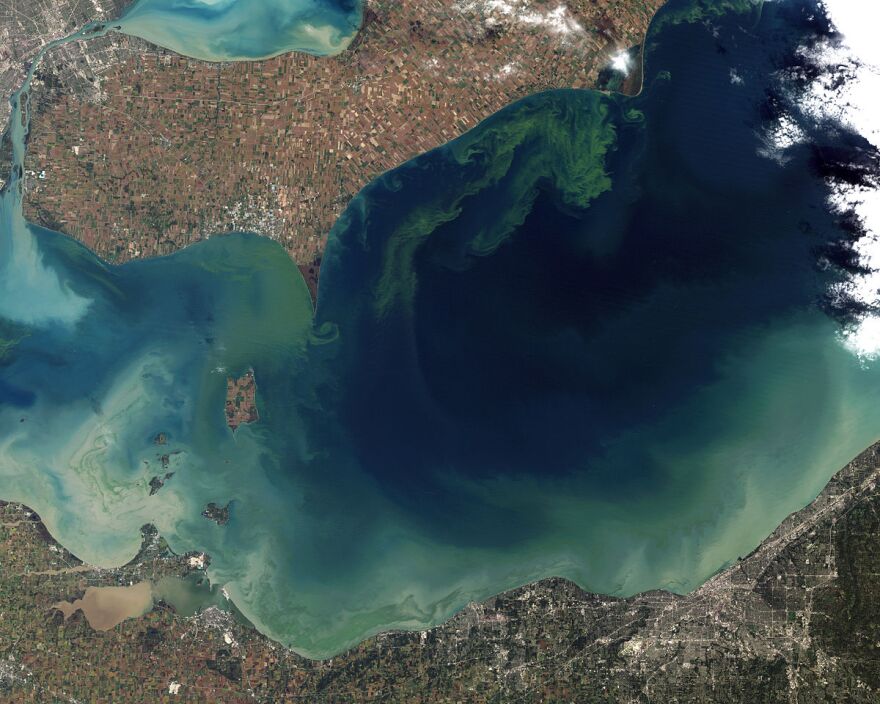August and September are peak months for the algae blooms that plague Lake Erie each year. This year, the bloom covers about 620 square miles. That’s roughly six times the size of the city of Cleveland and is so big, it is easily seen from space. On "Issues of the Environment" this week, 89.1 WEMU’s David Fair will talk with University of Michigan professor Don Scavia about the 2019 blooms and what needs to be done as climate change seems to be exacerbating the problem.
Overview
- Experts with the National Oceanic Atmospheric Administration (NOAA) predicted 2019 could see a particularly severe bloom, and it turned out to be one of the biggest in recent years. This year's bloom is so large it can be seen from space! Algae blooms tend to peak in August and early September.
- According to greatlakes.org, Lake Erie's algae blooms are an annual threat to the health and drinking water of more than 11 million people. This group is sponsoring a petition for greater regulation on farm runoff.
- NOAA reports that, “The size of a bloom isn’t necessarily an indication of how toxic it is. For example, the toxins in a large bloom may not be as concentrated as in a smaller bloom.” NOAA is developing tools to better detect toxicity.
- Weather drives the size and spread of these blooms. NOAA says, “This year, the lake temperature has remained relatively cool due to the higher-than-average rainfall in the region, so the bloom is not expected to start until late July when the water temperature reaches 65 to 70 degrees F. This contrasts with 2018, when exceptionally warm weather at the beginning of June caused an early start. Calm winds in July, especially in western Lake Erie, tend to allow the algal toxins to concentrate, making blooms more harmful.”
- Don Scavia, Professor Emeritus of Environment and Sustainability at the University of Michigan, previously worked as an aquatic ecologist with NOAA, and he was one of the scientists that predicted the large 2019 bloom.
Non-commercial, fact based reporting is made possible by your financial support. Make your donation to WEMU today to keep your community NPR station thriving.
Like 89.1 WEMU on Facebook and follow us on Twitter
— David Fair is the WEMU News Director and host of Morning Edition on WEMU. You can contact David at 734.487.3363, on twitter @DavidFairWEMU, or email him at dfair@emich.edu






